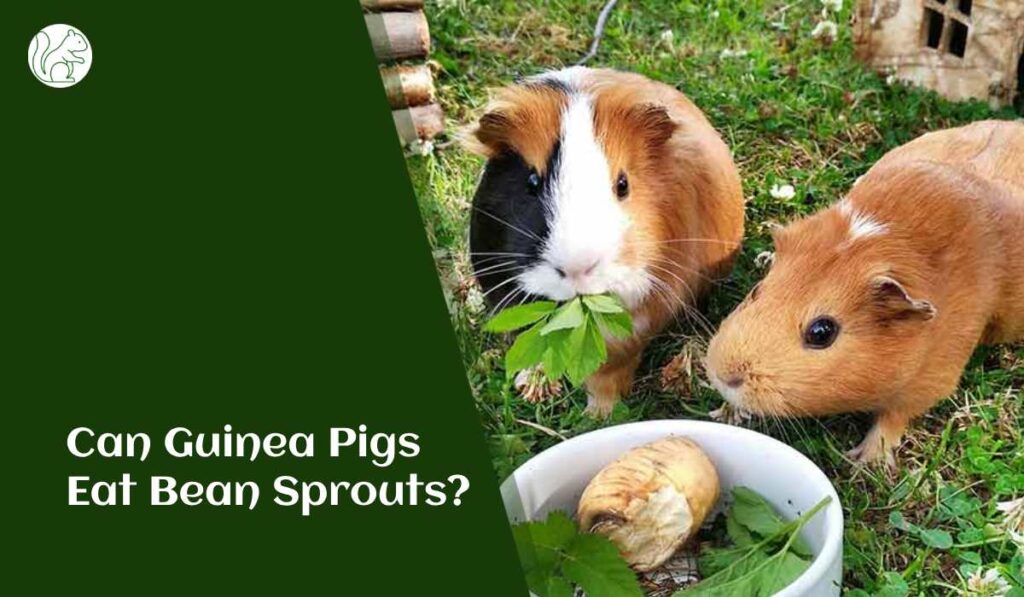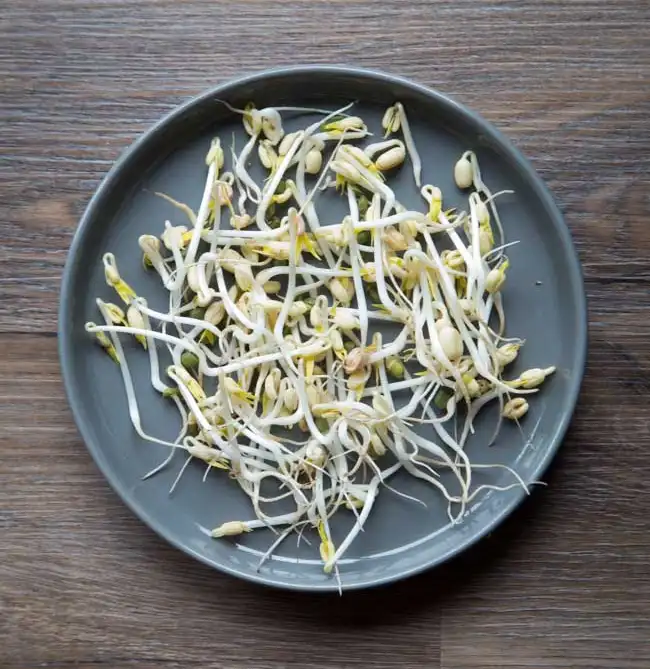Guinea pigs are delightful and adorable pets that bring joy to many households. As a responsible guinea pig owner, it’s crucial to ensure that you provide your furry friend with a well-balanced and nutritious diet. While guinea pigs primarily feed on hay, pellets, and fresh vegetables, you may be wondering if bean sprouts can be included in their diet. In this article, we’ll explore whether guinea pigs can eat bean sprouts and discuss their nutritional benefits, potential risks, and recommended feeding guidelines.

What Are Bean Sprouts?
Bean sprouts are the young, tender shoots that emerge from germinated beans, such as mung beans, soybeans, or lentils. These sprouts are commonly used in various cuisines worldwide and are valued for their crisp texture and mild flavor. They are often included in salads, stir-fries, soups, and sandwiches, adding a refreshing crunch and nutritional value to dishes.
Nutritional Benefits of Bean Sprouts
Bean sprouts are packed with essential nutrients that contribute to overall health. They are low in calories and fat, making them an excellent choice for individuals seeking a healthy, plant-based addition to their meals. Some key nutrients found in bean sprouts include:
- Vitamin C: Bean sprouts are rich in vitamin C, which is vital for the growth and repair of tissues, as well as the functioning of the immune system.
- Fiber: Bean sprouts are a good source of dietary fiber, which aids in digestion and helps maintain bowel regularity.
- Protein: Bean sprouts contain a moderate amount of protein, which is important for cell growth, repair, and overall development.
- Vitamin K: These sprouts provide vitamin K, which plays a crucial role in blood clotting and maintaining bone health.
Can Guinea Pigs Safely Consume Bean Sprouts?
Although bean sprouts offer several health benefits for humans, the same may not be true for guinea pigs. While guinea pigs can consume a wide range of fresh vegetables, including leafy greens, there are certain considerations to keep in mind when it comes to bean sprouts.

1. Oxalic Acid Content: Bean sprouts, especially mung bean sprouts, contain oxalic acid. Oxalic acid, when consumed in excess, can hinder calcium absorption and potentially lead to bladder or kidney stones in guinea pigs. Therefore, it is advisable to limit or avoid feeding bean sprouts to your guinea pig to prevent any potential health issues.
2. Digestive Sensitivity: Guinea pigs have sensitive digestive systems, and introducing new foods abruptly can cause digestive upset. Bean sprouts, being relatively high in fiber, may cause gas or bloating in guinea pigs if given in excess or too frequently.
Recommended Diet for Guinea Pigs
To ensure the optimal health and well-being of your guinea pig, it’s crucial to provide a balanced diet consisting of the following:
- Hay: Fresh, high-quality hay should be the staple of your guinea pig’s diet. Timothy hay or orchard grass hay are excellent choices, as they aid in digestion and help wear down their continuously growing teeth.
- Pellets: Guinea pig pellets should be specifically formulated for their nutritional needs. Look for pellets that are high in fiber and vitamin C, and avoid those that contain added sugars or artificial additives.
- Fresh Vegetables: Guinea pigs should receive a variety of fresh vegetables daily. Leafy greens like romaine lettuce, spinach, and cilantro are excellent options. Remember to introduce new vegetables gradually and observe how your guinea pig reacts to them.
- Water: Clean, fresh water should always be available for your guinea pig. Ensure that the water is changed regularly to maintain its freshness.
Conclusion
In conclusion, while bean sprouts offer nutritional benefits for humans, it is not recommended to feed them to guinea pigs. Due to their oxalic acid content and potential digestive sensitivity, it’s best to avoid including bean sprouts in your guinea pig’s diet. Instead, focus on providing a balanced diet that includes hay, pellets, and a variety of fresh vegetables that are safe and beneficial for your furry companion. By prioritizing your guinea pig’s nutritional needs, you can ensure they lead a healthy and happy life.
Remember, maintaining a well-informed and well-rounded diet for your guinea pig is essential for their overall well-being. Always consult with a veterinarian for personalized advice and guidance on your specific guinea pig’s dietary requirements.
